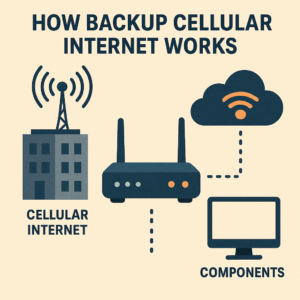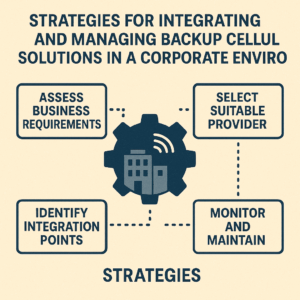Secure Your Business: The Importance of Backup Cellular Internet
- Phone: +1(833)PHX-Geek
- 712 H St NE Suite 1904 Washington, D.C. 20002
Are you looking to come to Toast POS? Follow this link to sign up and get a free quote from your local Toast Rep. They will come out to your restaurant, and give you a free, no obligation quote.
Introduction
In an increasingly digital world, business continuity has never been more critical. Companies face various risks, from natural disasters to cyber attacks, that can disrupt operations and impact service delivery. With growing reliance on the internet for day-to-day activities, ensuring uninterrupted connectivity is paramount for maintaining a competitive edge. As such, organizations must proactively plan for unexpected outages and implement robust backup solutions to safeguard their operations.
Effective business continuity planning involves identifying potential vulnerabilities and developing strategies to mitigate them. In this context, backup cellular internet emerges as a crucial tool. It provides an alternative communication channel that can seamlessly take over during primary network failures. This redundancy not only supports day-to-day operations but also protects sensitive data and client relationships, ensuring that businesses can respond quickly to disruptions.
As more companies adopt remote work models, the need for reliable internet access has become even more pronounced. A well-structured business continuity plan that includes backup cellular internet not only enhances operational resilience but also fosters employee confidence in their ability to perform their tasks without interruptions.
Backup cellular internet solutions offer businesses a reliable and flexible alternative to traditional wired connections. These systems use cellular networks to provide internet access, allowing organizations to stay connected even when primary connections fail. Understanding how these solutions work is essential for businesses looking to enhance their continuity plans effectively.
Most backup cellular internet solutions employ 4G LTE or 5G technology, which enables fast data transmission speeds. These solutions can be implemented via portable hotspots, dedicated routers, or integrated into existing network infrastructure. By leveraging cellular technology, companies can ensure that they have immediate internet access, regardless of the status of their primary network.
Moreover, modern cellular backup solutions often come equipped with automatic failover capabilities. This means that when a wired connection is lost, the system automatically switches to the cellular network without requiring manual intervention. This seamless transition is vital for maintaining productivity and ensuring that business operations continue without significant delays.
Integrating backup cellular internet into a business's continuity strategy offers numerous benefits. First and foremost, it enhances reliability. By having a secondary internet source, organizations can minimize the risk of downtime, ensuring that employees can continue working and customers can access services without interruption.
Additionally, backup cellular networks can improve overall operational efficiency. In situations where a business relies solely on wired connections, outages can lead to significant delays in service delivery and customer satisfaction. However, with a reliable backup in place, businesses can sustain their operations, thereby protecting their reputation and revenue streams.
Finally, implementing backup cellular networks can afford companies added flexibility. Organizations can expand their operations into areas with limited wired infrastructure, knowing they have a reliable internet source at their disposal. This flexibility can open new avenues for growth and innovation, allowing businesses to adapt to changing market conditions.
To fully leverage the benefits of backup cellular internet, businesses must adopt effective integration and management strategies. The first step is to evaluate current network infrastructure to identify areas that require redundancy. This assessment will help organizations understand how best to incorporate cellular backup solutions into their existing systems.
Next, training employees on how to utilize backup cellular internet effectively is crucial. Regular drills and testing can ensure that staff members are familiar with the failover process, minimizing confusion during actual outages. Additionally, establishing clear protocols for when and how to activate backup systems will enhance response times and operational resilience.
Finally, businesses should regularly review and update their backup solutions to ensure they meet evolving needs. As technology advances and organizational requirements change, maintaining an optimal backup system is essential for continuous improvement and ensuring long-term success in business continuity efforts.
Conclusion
In conclusion, implementing backup cellular internet is a critical component of any business continuity strategy. By understanding its importance, businesses can enhance their resilience against disruptions and maintain operational efficiency. With the right integration and management strategies, organizations can ensure seamless connectivity, safeguard their assets, and prepare for whatever challenges lie ahead.